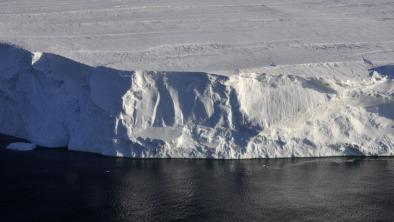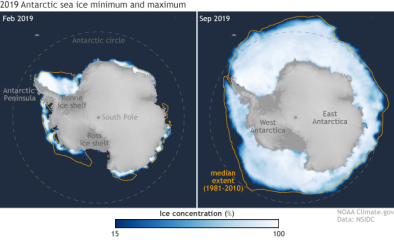Science Source
Eddy Heat Flux in the Southern Ocean: Response to Variable Wind Forcing
- Assesses the role of time-dependent eddy variability in the Antarctic Circumpolar Current (ACC) in influencing warming of the Southern Ocean
- Uses an eddy-resolving quasigeostrophic model of the wind-driven circulation
- Quantifies the response of circumpolar transport, eddy kinetic energy, and eddy heat transport to changes in winds
- On interannual time scales, the model exhibits the behavior of an “eddy saturated” ocean state, where increases in wind stress do not significantly change the circumpolar transport, but instead enhance the eddy field
- Finds that the instantaneous response to increased wind stress is to cool temperatures through increased northward Ekman transport of cool water, but, in the longer term, the enhanced eddy state is more efficient at transporting heat, leading to a warming of the ocean
- Finds that the total eddy heat flux response is greater than the Ekman transport heat flux in this model by a factor of 2, indicating that coarse (non eddy resolving) models may fail to adequately capture the key processes
- Tests the model response to long-term changes in wind forcing, including steadily increasing circumpolar wind strength over a 30-yr period
- The model shows a response in eddy heat flux, and a change in ocean temperature not dissimilar from observed Southern Ocean warming
- These findings suggest that eddy heat flux, energized by increasing wind stress, may be a significant contributor to the observed warming of the Southern Ocean
Related Content
Headline

Jan 29, 2020 | BBC News
Journey to the 'doomsday glacier'
Headline

Nov 22, 2019 | NOAA Climate.gov
Understanding climate: Antarctic sea ice extent
Headline

Mar 26, 2019 | The Guardian
Australian researchers find huge lakes beneath largest east Antarctic glacier
Science Source
| Geophysical Research Letters
Mass Loss of Totten and Moscow University Glaciers, East Antarctica, Using Regionally Optimized GRACE Mascons
Yara Mohajerani, Isabella Velicogna, Eric Rignot


